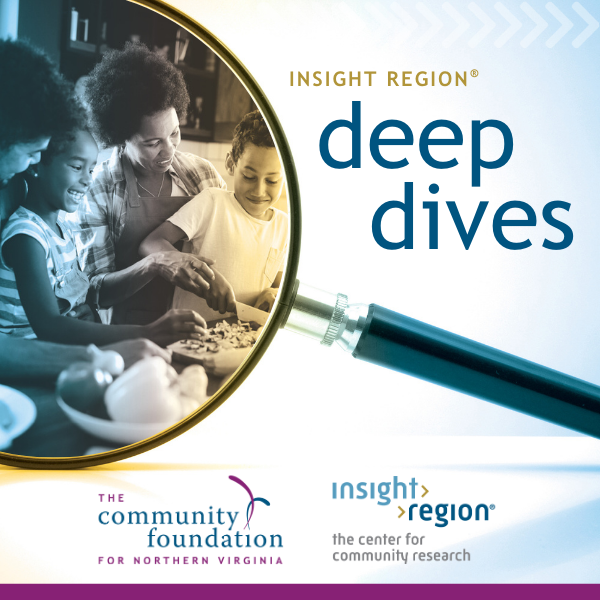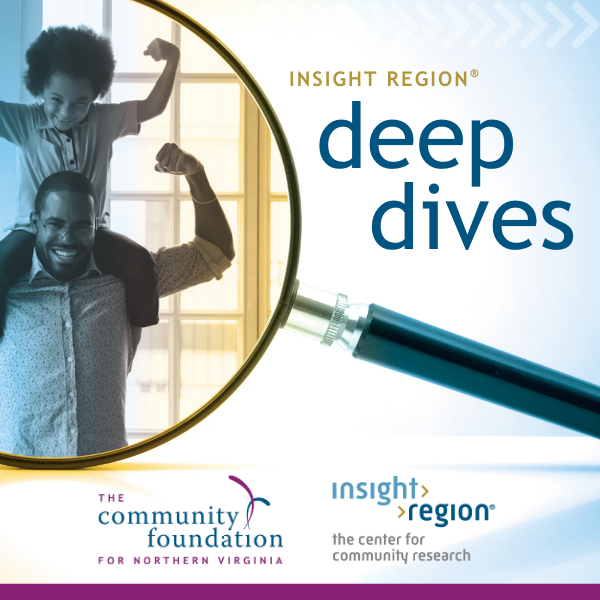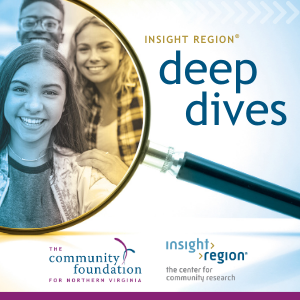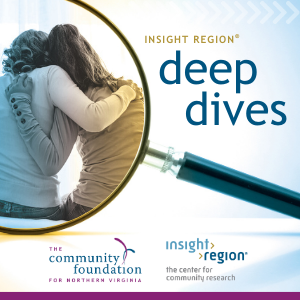View all available sessions below and register for each one separately.

The State of Food Insecurity for Northern Virginia Youth
June 17, 2025 at 12:00 pm
Zoom
Join us for an in-depth discussion on the growing issue of food scarcity among youth in Northern Virginia. This session will explore the complex factors contributing to food insecurity in the region, the impact it has on the health and well-being of local young people, and the innovative solutions being implemented to address this critical issue.
This session is essential for educators, school administrators, nonprofit leaders, community organizers, policymakers, and anyone passionate about addressing food insecurity in Northern Virginia.
REGISTER
 Housing Needs of Northern Virginia Youth
Housing Needs of Northern Virginia Youth
August 21, 2025 at 12:00 pm
Zoom
In this session, we will explore the critical issue of housing instability among youth in Northern Virginia, a growing challenge that impacts their overall well-being, educational outcomes, and future opportunities. With rising housing costs and a lack of affordable options, many young people in the region are facing uncertainty and insecurity in their living situations. Key topics will include the scope of housing instability in NOVA, impact on youth development, identifying their needs, and community solutions working to address this widespread issue.
This session is vital for educators, social service providers, nonprofit leaders, policymakers, and community leaders looking to better understand the housing challenges faced by youth in NOVA and learn about strategies to ensure that every young person has access to safe, stable housing.
REGISTER
 Back to School: Focus on Northern Virginia Youth Educational Performance
Back to School: Focus on Northern Virginia Youth Educational Performance
September 16, 2025 at 12:00 pm
Zoom
As students in Northern Virginia head back to school, it's the perfect time to take a closer look at the educational performance of youth in the region. This session will explore key factors influencing academic success, challenges facing students, and the support systems that can help improve educational outcomes for all learners. Key topics will include: current trends in educational performance, barriers to success, support systems and interventions, and collaborative solutions.
This session is designed for educators, school administrators, parents, social service providers, and community leaders looking to better understand the state of youth education in Northern Virginia and explore actionable strategies to support student success.
REGISTER
PAST EVENTS
 Who are Northern Virginia Youth?
Who are Northern Virginia Youth?
December 19, 2024 at 12:00 pm
Zoom
This session focused on Northern Virginia’s youth demographics—an essential part of understanding the trends, challenges, and opportunities impacting the next generation.
This session is ideal for educators, community leaders, policymakers, and anyone interested in better understanding the youth of Northern Virginia to help guide future initiatives and improve outcomes for the next generation.
LEARN MORE:
Who Are NOVA Youth?
 Health and Safety of Children & Youth in Northern Virginia
Health and Safety of Children & Youth in Northern Virginia
January 29, 2025 at 12:00 pm
Zoom
This was an important webinar focused on the safety and health of youth in Northern Virginia, with a special emphasis on critical issues affecting students today. This session explored: feelings of safety at school, suicide prevalence and risk, and substance use trends.
This webinar provided valuable insights for educators, parents, mental health professionals, and community leaders, dedicated to supporting youth health and safety.